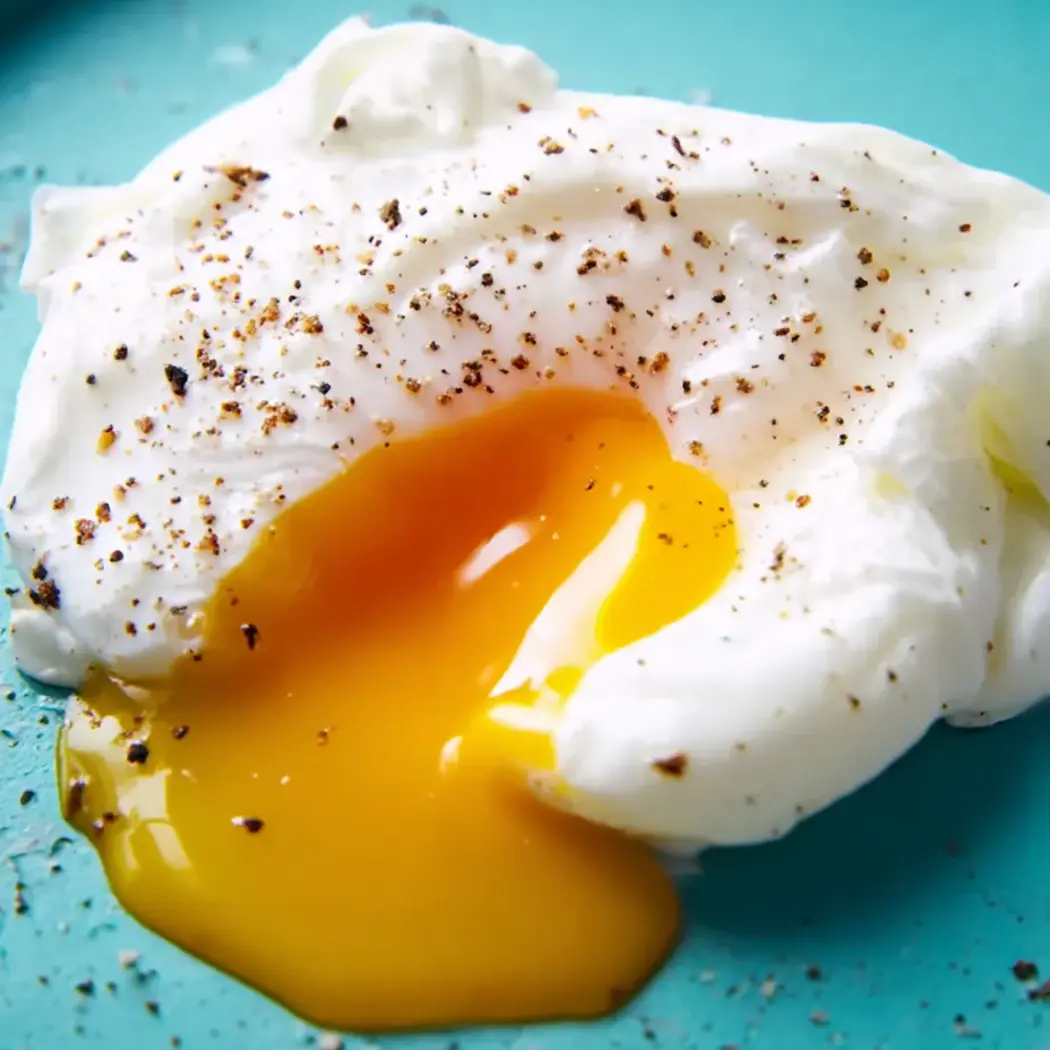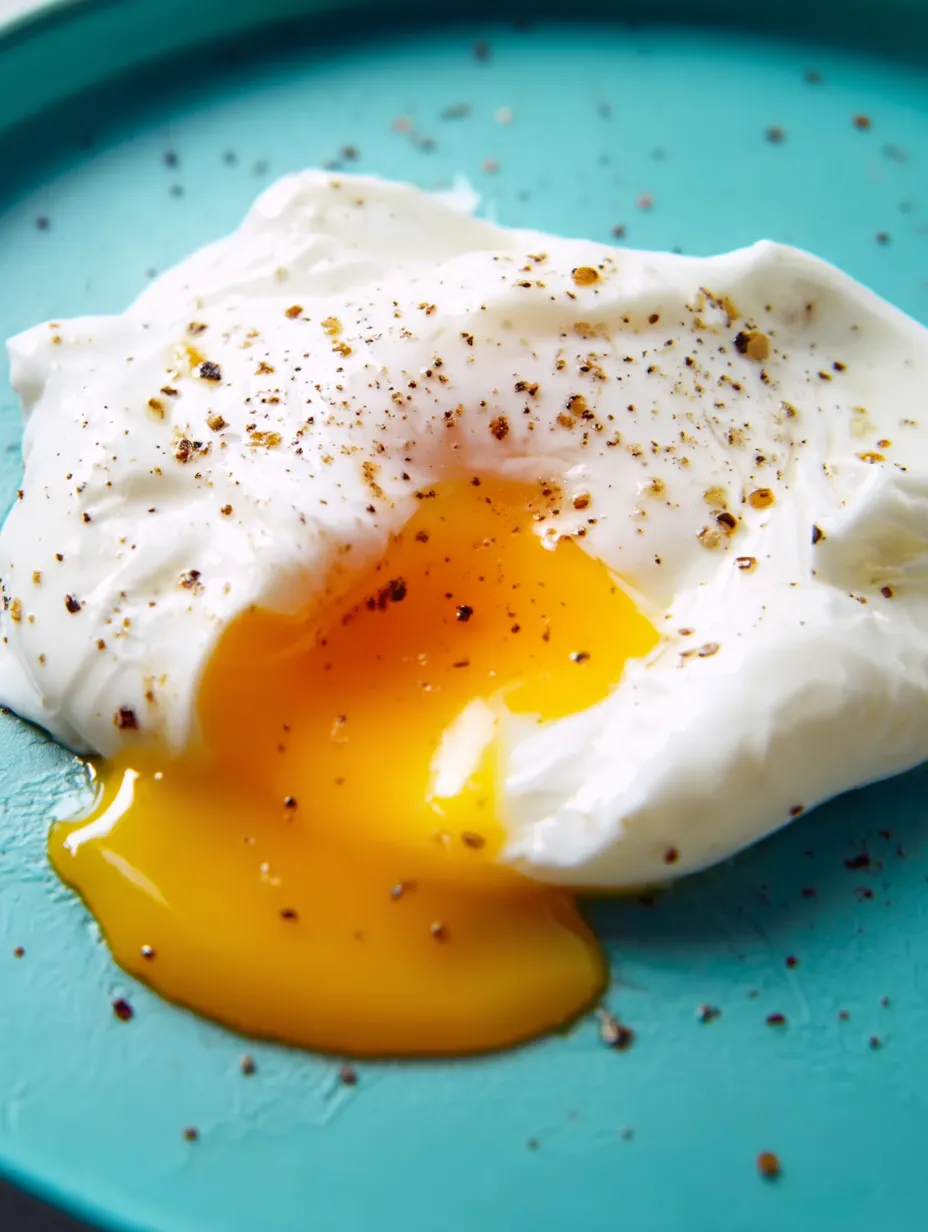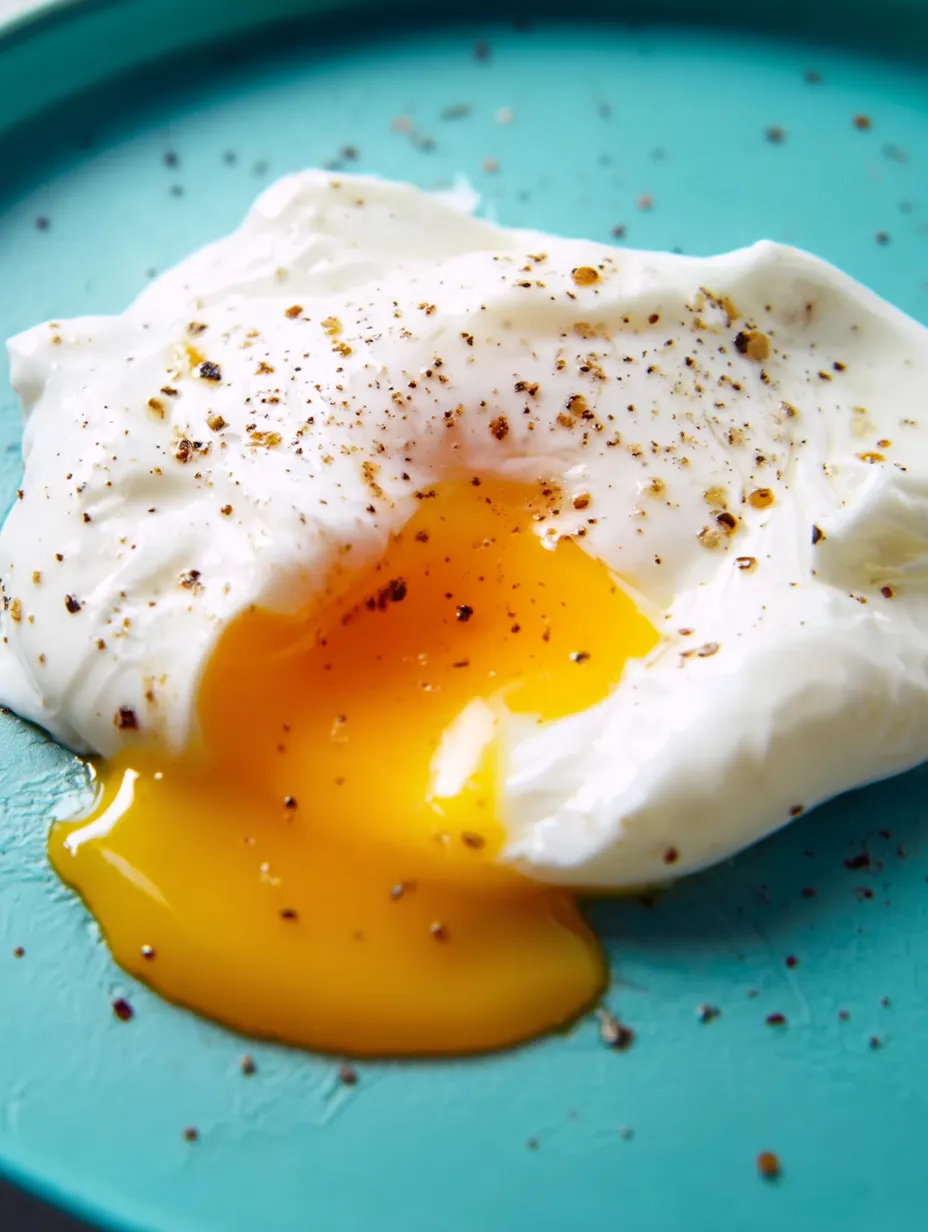 Pin it
Pin it
This perfectly poached egg recipe delivers restaurant-quality results using just your microwave. I discovered this method during a busy workweek when I craved eggs benedict but lacked time for traditional poaching. Now it's my go-to technique for creating silky egg whites with beautifully runny yolks in minutes.
I initially doubted that microwave poaching could rival stovetop results, but after perfecting this technique, I've actually come to prefer it for everyday breakfasts. The precise temperature control gives remarkably consistent results.
Ingredients
- Water: creates the gentle cooking environment necessary for perfect poaching
- Vinegar: helps the egg whites coagulate quickly and maintain their shape
- Kosher salt: enhances flavor and assists with protein coagulation
- Large fresh egg: is ideal for poaching as fresher eggs hold their shape better
Step-by-Step Instructions
- Prepare the Poaching Liquid:
- Whisk water, vinegar, and salt in a microwave-safe bowl until completely dissolved. This combination creates the ideal environment for the egg proteins to set properly without spreading too much.
- Heat the Water:
- Microwave the liquid mixture for about 4 minutes in 1-minute intervals until it reaches 209-212°F. This precise temperature range is critical for proper poaching without overcooking the yolk.
- Add the Egg:
- Carefully remove the hot bowl using oven mitts or a kitchen towel, then gently slip the pre-cracked egg into the hot water. The gentle approach prevents the yolk from breaking or the whites from spreading too much.
- Microwave the Egg:
- Return the bowl to the microwave and cook at 80% power for approximately 1 minute and 20 seconds. This reduced power level provides the gentle heat needed for perfect poaching without overheating.
- Prepare for Serving:
- While the egg cooks, place a paper towel on a plate to absorb excess moisture after removing the egg.
- Remove and Serve:
- Use a slotted spoon to carefully lift the poached egg, allowing excess water to drain. Transfer to the paper towel-lined plate, trim any straggly whites if desired, and serve immediately while perfectly warm.
 Pin it
Pin it
The vinegar is my secret weapon in this recipe. I was initially concerned it would flavor the eggs, but the small amount used is just enough to help the proteins set without imparting any noticeable taste. After trying several varieties, I find rice vinegar works most subtly, but any mild vinegar will do.
Getting the Perfect Yolk
The holy grail of poached eggs is achieving that perfect balance between fully set whites and luxuriously runny yolks. If your first attempt yields overcooked yolks, reduce the cooking time by 10-15 seconds. Conversely, if the whites are still a bit loose, add another 10 seconds. Every microwave varies slightly, so note your perfect timing once you find it.
Creative Serving Ideas
Transform your perfectly poached eggs into a complete meal with minimal effort. Try them atop avocado toast with a sprinkle of red pepper flakes, nestled into a bowl of ramen for added richness, or served with sautéed greens and a piece of crusty bread. For a classic breakfast, nothing beats eggs benedict with hollandaise, and these microwave poached eggs make the process much less intimidating.
 Pin it
Pin it
Troubleshooting Common Issues
If your egg whites spread too much in the water, your eggs might not be fresh enough. Try refrigerating eggs with the pointed end down to keep the yolk centered. If the yolk breaks during cooking, the water temperature might be too high or you might be cooking for too long. Remember that eggs continue cooking slightly after removal, so it's better to slightly undercook than overcook.
Frequently Asked Questions
- → What kind of vinegar works best?
Any mild vinegar such as rice vinegar, white wine vinegar, or apple cider vinegar works perfectly.
- → How do I ensure the egg cooks evenly?
Heat the water to 209–212ºF before adding the egg and microwave at 80% power for even cooking.
- → Can I use table salt instead of kosher salt?
Yes, but use half as much table salt since it's more concentrated than kosher salt.
- → How can I avoid overcooking the yolk?
Monitor cooking time carefully and microwave in increments to keep the yolk soft.
- → Is trimming the egg whites necessary?
Trimming the egg whites is optional and purely for presentation purposes.
